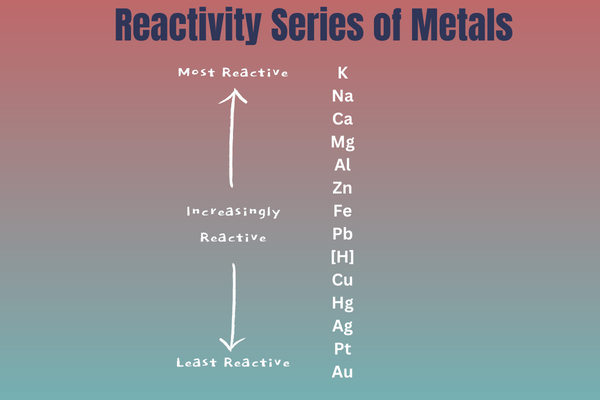CBSE board in India is for sure one of the most popular and known boards in the country because, after all, it is the Central Board of Secondary Education. And you might have heard a million criticisms and good things about the CBSE board. But if you are a student who has just passed, let’s say, 10th grade and are thinking of doing the rest of your studies through the CBSE board. If that’s the case, then it might be a little confusing for you to decide whether or not it is going to be a good option. Correct? Well, that’s what we are about to make clear for you with the possible advantages and disadvantages of the CBSE board in today’s post. Here we go.

Advantages of CBSE Board
Like always, let’s begin this post with the pros or the shiny side of things about the CBSE board.
1. Uniform and Standardized Syllabus
The CBSE board offers a syllabus that is both uniform and highly standardized. This uniformity is an ultimately good thing, especially for students in CBSE-affiliated schools, as it guarantees a consistent educational experience. This aspect is particularly advantageous for families that often find themselves on the move.
2. Broadly Recognized and Accepted
Nationally and internationally, the recognition of the CBSE board stands tall. Such widespread acknowledgment aids in easing the transition and admission processes for students, whether they are switching schools or stepping up for higher education.
3. Emphasis on Fundamental Disciplines
A noteworthy emphasis is placed on crucial subjects like Science and Mathematics by the board. This focus sharpens analytical thinking and problem-solving skills, and we can’t put enough emphasis on how important they are for students who are setting their sights on competitive examinations and envisioning careers in STEM fields.
4. Lots of Study Materials
CBSE students are lucky to have so many study materials available. There are lots of guides and sample papers to help them. This means students can prepare for exams in a complete and organized way.
5. Learning in English
CBSE teaches mostly in English. This is great because it helps students get better at the language. And, as we all know, being good at English can open up many opportunities around the world.
6. Flexible Curriculum Choices
Talking about curriculum flexibility, even though there are a few criticisms here and there, the CBSE board stands out by offering a range of subject choices. This kind of flexibility is super important as it lets students dive into various fields, sparking their interest in different career paths.
7. Edge in Competitive Exams
Now, let’s focus on competitive exams. A major advantage for CBSE students is that many significant competitive exams in India follow the CBSE syllabus. What does this mean for them? Well, it gives CBSE students a bit of an upper hand, a sort of head start in these crucial examinations.
8. Stress-Free Grading System
Moving on to the grading system. The CBSE board employs a 9-point ranking system. But why does this matter? Because it’s not just about assigning grades; this system plays a big role in reducing academic pressure. It shifts the focus from the fear of failing to a more positive outlook, encouraging students to concentrate on improvement and personal growth.
Disadvantages CBSE Board
But why does the CBSE board face so much criticism in India? Let’s find out:
1. Rote Learning
Now, this is the most common thing that you’d have known for years that CBSE board is all about rote learning. Like, you read, you memorize, you write them down in a test or exam, and then you completely forget about it. That’s how it is. And this is truly one of the biggest negatives, not just about the CBSE board, but the Indian education system in general.
2. Missing Practical Knowledge
Now, in the previous point, we talked about how the CBSE board focuses on rote learning, but there is another thing associated with it. You see when students are just memorizing what they are told, they are just consuming the information. But the thing is, this information that they are continually filling their minds with, has no use, or should we say that the students don’t know how to use that in real life because they are never taught that.
3. Curriculum Choices
Another major downside of doing your 10th and 12th from the CBSE board is that you don’t have enough subject options. Yeah, they have the basic subjects that you might have heard a million times or have known about for years. But what about the newer subjects that were introduced into the Indian education system recently? Yeah, you might wanna look elsewhere for that because the CBSE board won’t cut it for you.
4. Crazy Competition
One thing the CBSE board is famous for in India is the craze competition among students. And this thing right here is more like a nightmare for thousands of students in the country. What about the mental health of the students? Yeah, CBSE doesn’t care about that, that’s for sure. And the stress for the students is literally through the roof when it is exam time.
5. Super Long Syllabus
One thing that really makes the stress level of students go up a notch is the lengthy syllabus the CBSE board has. Just take a look at it online and you’ll know what we are talking about. By doing so, you’ll understand why CBSE board students often take the rote learning path because there is no way in a million years that a student will be able to learn this much content.
6. Keeping Up with Syllabus Changes
Now, the super long syllabus is one thing, but on top of that, there are constant syllabus changes that the students and teachers must keep up with every single year. This is also a problem because then the students must buy the updated books, which is an additional cost, and not every student’s parents are rich, you know?
Conclusion
There you have it. Now you must be clear in your head about whether or not to go with the CBSE board for the rest of your school studies. Right? We hope that our post has helped you to come up with an informed decision with this information about the CBSE board.

Rahul Kumar is a passionate educator, writer, and subject matter expert in the field of education and professional development. As an author on CoursesXpert, Rahul Kumar’s articles cover a wide range of topics, from various courses, educational and career guidance.



